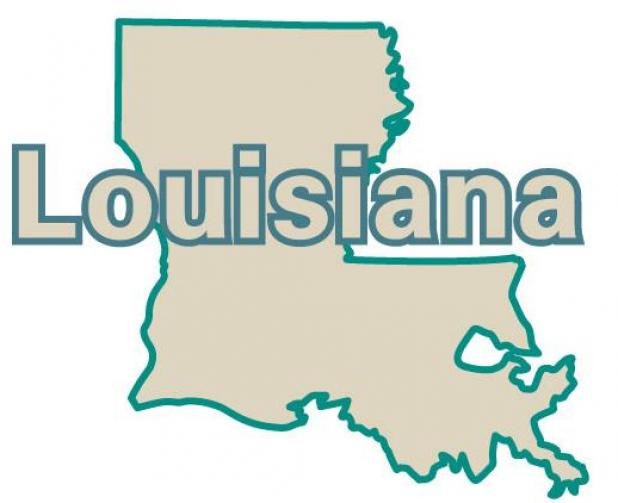
Louisiana Spotlight: Edwards faces tax scrutiny
BATON ROUGE — As he seeks re-election to a second term, Louisiana Gov. John Bel Edwards will have a delicate dance to do on taxes, one of the chief points of criticism from his Republican challengers.
When he was a candidate in 2015, the Democrat Edwards said he didn’t expect to directly raise taxes to solve the state’s financial problems. Instead, working with a majority-Republican Legislature, he did just that.
As GOP critics seize on taxes as one of Edwards’ weak points, the incumbent governor is hoping to make the case that those tax hikes steadied Louisiana’s finances, ended a near-decade-long cycle of budget gaps, and established a stronger system of budgeting.
“The days of crippling deficits are behind us. We are budgeting smarter, more honestly and finally have the stability we need, the predictability that the state has needed for a long time.” Edwards said in a recent speech.
Whether voters believe Edwards’ financial narrative will be a key factor in determining if they back him in the Oct. 12 election, when he faces opposition from two Republican contenders, U.S. Rep. Ralph Abraham and businessman Eddie Rispone, a longtime GOP donor.
Both Republican challengers suggest Edwards too easily turned to taxes to solve the state’s financial problems.
“He’s a tax and spend liberal,” Rispone said. Abraham slammed Edwards as enacting “the largest tax increase in state history.”
Edwards defends the tax approach by saying the financial problems left behind by Republican former Gov. Bobby Jindal were far larger than people initially knew. The Democratic governor notes taxes were passed with bipartisan support, needing Republican votes to emerge from the majority-GOP House and Senate.
Under Jindal’s two terms, he and lawmakers repeatedly used short-term patches to eliminate financial shortfalls. They raided savings accounts, drained trust funds, sold off state property and delayed bill payments to keep the budget in balance amid tax breaks that siphoned away more and more money from the treasury.
But Jindal and lawmakers refused to either cut government enough to match the recurring, annual tax and fee money the state receives or to raise taxes to match the programs and services they wanted to provide.
Those decisions kept causing new budget holes.
When Edwards ran for governor in 2015, he largely sounded like his GOP competitors when talking about ways to address the persistent budget gaps.
He said he’d focus on eliminating and capping tax breaks that aren’t deemed to provide a good return on investment for the state.
In a November 2015 debate, both Edwards and his Republican runoff challenger, then-U.S. Sen. David Vitter, said they wouldn’t raise tax rates on businesses or individuals. They talked of very similar plans to make government more efficient, remove protections that keep some areas of the budget off-limits to cuts and scale back tax break programs.
Tax rates under Edwards, however, were raised.
When Edwards took office in 2016, the approach he and lawmakers negotiated involved more than $1.1 billion in temporary tax changes — mainly a 1 percent state sales tax hike — and plans to study a longer-term tax overhaul.
But disagreements over what “tax reform” means and legislative politics sidelined a comprehensive package to rewrite the tax laws. A policy-based task force’s proposed overhaul never happened, bogged down amid political and philosophical disputes between Edwards and conservative Republicans in the House, where every task force suggestion was bottled up.
So the governor and lawmakers last summer settled instead on renewing 0.45 percent of the expiring 1 percent sales tax until mid-2025. Several sales tax breaks for people and companies also again were scaled back, to raise an estimated $500 million a year.
Edwards considers the end of piecemeal budgeting, along with passage of a seven-year tax renewal, a significant win.
Still, he demonstrates his concern about how the taxes will be viewed, when he makes the questionable claim that taxes were cut last year because he and lawmakers didn’t renew the entire expiring sales tax.
Taxes are higher today than they were when Edwards took office. The question is whether voters like the stabilized budget picture and the state-financed programs they got for the tax hike.
Melinda Deslatte has covered Louisiana politics for The Associated Press since 2000. Follow her at http://twitter.com/melindadeslatte
